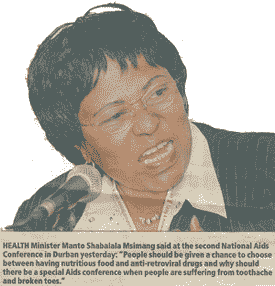Scientific Misconduct Blog Memory Hole: Events of October the 14th
Quote of the day
Science progresses one funeral at a time.Max Planck (paraphrase)

12 years ago today: Radiation Doctors abused trust: serious crimes but no blame
On 14 October 1995 the following commentary appeared in the New Scientist.Radiation Doctors Abused Trust in the Name of Science"
Vincent Kiernan, New Scientist, 14 October 1995: 8
A common thread of deceit and serious ethical breaches ran through a series of secret radiation experiments carried out on Americans during the Cold War, a commission declared last week. It points the finger at medical researchers and government officials who authorised the tests. They failed to obtain consent form people who were exposed to radioactivity, neglected weigh the risks of the experiments against their benefits, and misused secrecy to cover their tracks. Despite these forthright conclusions, the commission has come under fire for being too timid.
The 14-strong panel focuses on an unspecified number of experiments in which people and their families were mistreated. "We learned things that we wish had not occurred," says Ruth Faden, an ethicist from Johns Hopkins University in Baltimore who chaired the commission.
In these experiments, scientists and bureaucrats did not always bother to check whether the risks were reasonable or could be minimised. In addition, they failed to gain consent either from health people who risked harm by participating in experiments, or sick patients who were unlikely to benefit from radiation. "Government officials and biomedical professionals should have recognised that when research offers no prospect of medical benefit, whether subjects are healthy or sick, research should not proceed without the person's consent," says the commission.
The panel also accuses researchers and officials of using secrecy not to protect national security, but simply to hide projects that would have been politically embarrassing of left the government open to legal challenge.
The commission recommends that the government should apologise to people who were experimented upon without their consent. In addition, compensation should be paid to people harmed in the tests such as children exposed to radioactive iodine... The families of people who could not sue the government because of secrecy also deserve financial damages. How many people might be eligible for payment is unknown, Faden says. Clinton says he will abide by the commission's recommendation and pay the compensation.
Reactions elsewhere to the commission's conclusions have not all been positive. Jack Geiger, professor of community medicine at the City University of New York, calls the report "timid" for taking too narrow a definition of the harm done by the experiments. The commission defines as harmful only those exposures to radiation that increased the risk of death from cancer by 10 per cent. "They're saying that the cancer risk is of no consequence if you don't die of it," Geiger says. Similarly, the report dismisses other damage such as psychological effects.
The commission steers clear of blaming individuals for ethical and moral violations. Neither does it recommend any sanctions against them or their institutions. "In many cases, the parties who were responsible are no longer living. In other cases, they're quite elderly" and hunting them down would be "inappropriate," says Faden. In many cases, it would be impossible to decide who was responsible, she says.
But in an effort to prevent any repetition, the commission recommends that the government establish "clear and severe penalties" for researchers who abuse their subjects. Scientists should also be certified in research ethics before being allowed to receive a government grant.
8 years ago today: Fraud concern in garlic research
On 14 October 1999 it was reported that Humboldt University in Berlin had begun a misconduct investigation involving a researcher (Holger Kiesewetter) accused of falsifying photographs in a paper (Atherosclerosis 144, 237 249; 1999) claiming an antisclerotic effect of a garlic. The study was funded by Lichtwer Pharma, the producers of the garlic medicine. Kiesewetter provided his data files and there appeared to be no evidence of fabrication.Nature 401 (14 October 1999), p629; Nature. 2000 (6 April 2000), p404

2 years ago today: Pots and kettles - Johnson sues Amgen over Aranesp
On 14 October 2005 Johnson and Johnson Sues Amgen for Anti-Competitive Practices in Marketing Aranesp. Various news agencies reported that Johnson and Johnson is suing Amgen for anti-competitive practices used to market its drug darbepoitin (trade name: Aranesp), used to reduce anemia.The full extent of the corporate corruption of clinical guidelines and real anti-competitive practices involving these drugs became apparent over the following years:
October 2005: Nature Reports on Conflicts of Interest Affecting Guideline Writers
October 2006: Guidelines in Whose Interest? - Amgen, Epoetin, and Chronic Kidney Disease
November 2006: Guidelines in Whose Interest? - Epoetin Revisited
January 2007: Reluctance of Medical Journals to Air Criticisms of Vested Interests
August 2007: How Aggressive Treatment of Anemia was "Earmarked"

1 year ago today: South Africa sidelines Health Minister
On 14 October 2006 the South African government attempted to sideline (temporarily) its health minister Dr Manto Tshabalala-Msimang in President Mbeki’s absence. This was part of an internal battle to get Tshabalala-Msimang dismissed over her role in the bungled approach of the South African Government to the AIDS crisis.The battle against HIV was a crucial test of the post apartheid government. Many factors fuelled HIV denial in South Africa including unaffordability of treatment. Poverty and nutritional deficiencies have contributed to the epidemic. There is also little doubt that some of the science involving HIV drugs and infectious diseases is non-transparent gobbledegook. Some in comfortable Western armchairs have provided comfort to the perpetrators.
To quote Parks Mankahlana, Mbeki's main spokesperson:
"That mother is going to die and that HIV negative child will be an orphan. That child must be brought up. Who is going to bring the child up? It's the state, the state. That's resources, you see. (Quoted in Mail and Guardian, 21 July 2000)"
HIV accounts for at least 1700 deaths per day in South Africa. Mortality statistics (from all causes) in South African men and women aged 25-49 make sobering reading.
- Year - Deaths
- 1997 - 92,796
- 1998 - 114,215
- 1999 - 129,881
- 2000 - 150,149
- 2001 - 172,963
- 2002 - 200,844
- 2003 - 228,819
- 2004 - 242,066
- 2005 - 250,043
Reading: Smith TC, Novella SP (2007) HIV Denial in the Internet Era. PLoS Med 4(8): e256
Source for date: South Africa sidelines its health minister on AIDS issues BMJ 333:774
No comments:
Post a Comment